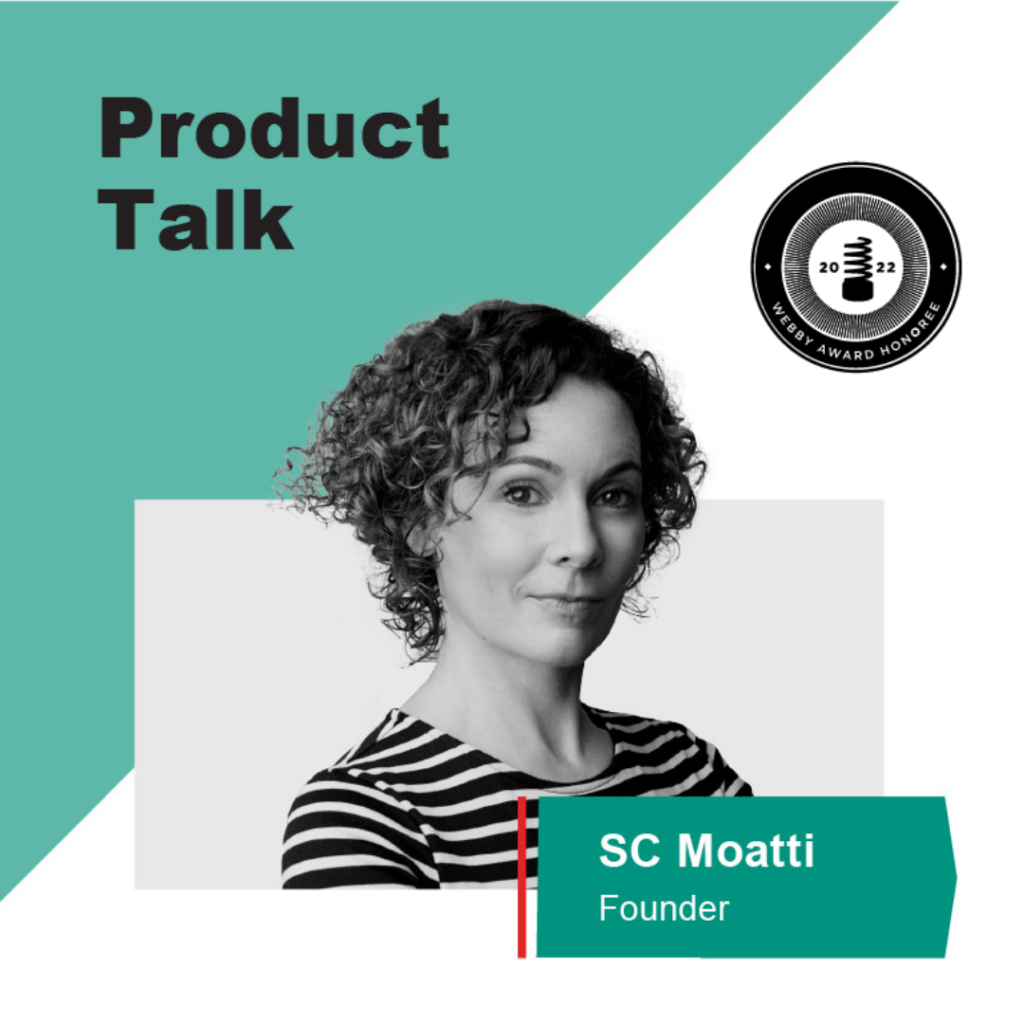How can product leaders build innovative solutions to tackle the complex challenges of the circular economy? In this episode hosted by Jonathan Ozeran, Rheaply VP of Product Sabira Lakhani shares insights on navigating the journey of creating asset reuse, material exchange, and empowering industries to transition from a linear to a circular model. From her early experiences witnessing the global waste crisis to building technology that enables circularity at scale, her story offers valuable lessons on driving systemic change through product development.
Subscribe to the Product Talk podcast on Spotify and Apple Podcasts and catch every conversation with leading product executives. Episodes drop on Wednesdays.

Show Notes
- Sabirah Lakhani’s journey into the circular economy was sparked by a transformative experience witnessing waste issues in India.
- She transitioned from impact investing to working directly in the industry, drawn to Rheaply’s mission of enabling circularity through software.
- Lakhani’s interdisciplinary graduate education in design, engineering, and management prepared her for a product role.
- Being in the right place at the right time, like attending a pitch by Rheaply’s CEO, can open unexpected doors in one’s career.
- Understanding the inefficiencies and opportunities in end-of-life material flows motivated Lakhani to work on reversing the direction of waste.
- Rheaply’s tools evolved from an internal marketplace to more comprehensive inventory management and external connectivity.
- Expanding into new categories like furniture requires deep understanding of the unique needs, business rules, and networks of each industry.
- Regulation and compliance are important considerations, with Rheaply’s platform helping customers meet requirements around digitizing assets.
- Lakhani’s team focused on thematic goals and quarterly/annual milestones to stay motivated during the long journey of market adoption.
- Involving the product team in on-site customer interactions is crucial for gaining insights and providing better tools.
- Rheaply’s product vision involved a phased approach to serving different sides of the circular economy market.
- Measuring ROI and cost savings for customers is a key metric for Rheaply’s product success.
- Balancing strategic thinking and day-to-day tasks is managed through an innovation squad and regular strategic musings sessions.
- AI and digital transformation hold significant potential for automating data capture, improving workflows, and enabling more efficient decision-making.
- Robust data about products and materials is essential for realizing the full benefits of visual recognition and AI in the circular economy.
- Bridging manufacturer data with visual recognition can streamline product identification and digitization.
- Lakhani emphasizes the importance of being hand in hand with customers to gain the most valuable insights.
- Rheaply’s step-by-step approach to digitization involves working closely with manufacturers to categorize and organize data.
- The circular economy presents a unique opportunity for product leaders to drive systemic change through innovative solutions.
- Lakhani’s podcast “Selling Circular” offers further insights into sustainable business models in the circular economy.
About the speaker
Sabira Lakhani has over a decade of experience in designing and building solutions for circular economies. Sabira is VP of Product at Rheaply where she leads a team delivering reuse solutions to large enterprises. While pursuing her Master's at MIT, she worked with Apple on packaging and end of life disposition projects. Previously, she led Saahas Zero Waste's Operations and Client Experience team that implemented decentralized waste management solutions at large campuses across India. In her role as Board Member at a circular economy non profit, S3IDF, Sabira helps source and evaluate pro-poor investment opportunities.
About the host
Jonathan is a product and operations leader, company builder, investor and advisor. He has assembled, scaled and led product, design, software engineering, hardware engineering and machine learning teams across numerous financing stages (pre-seed through Series G).